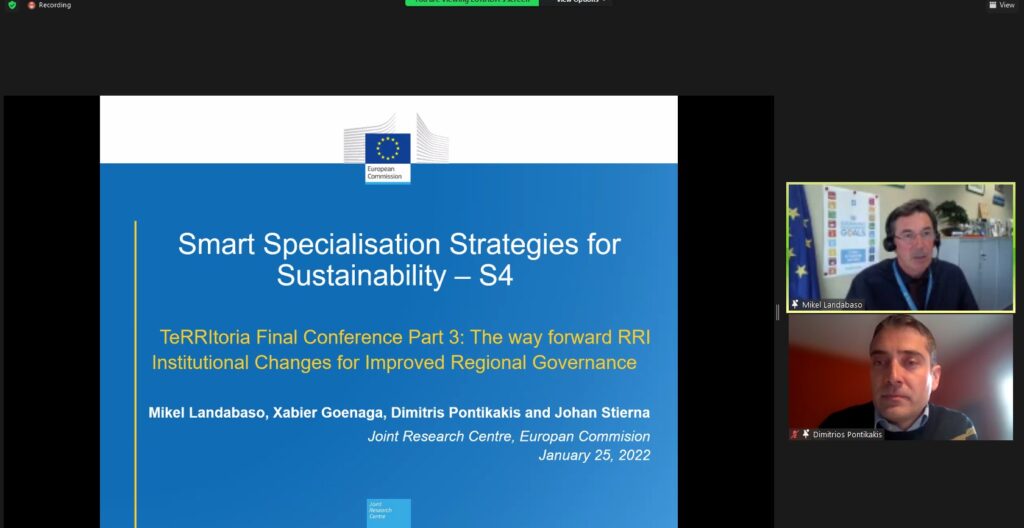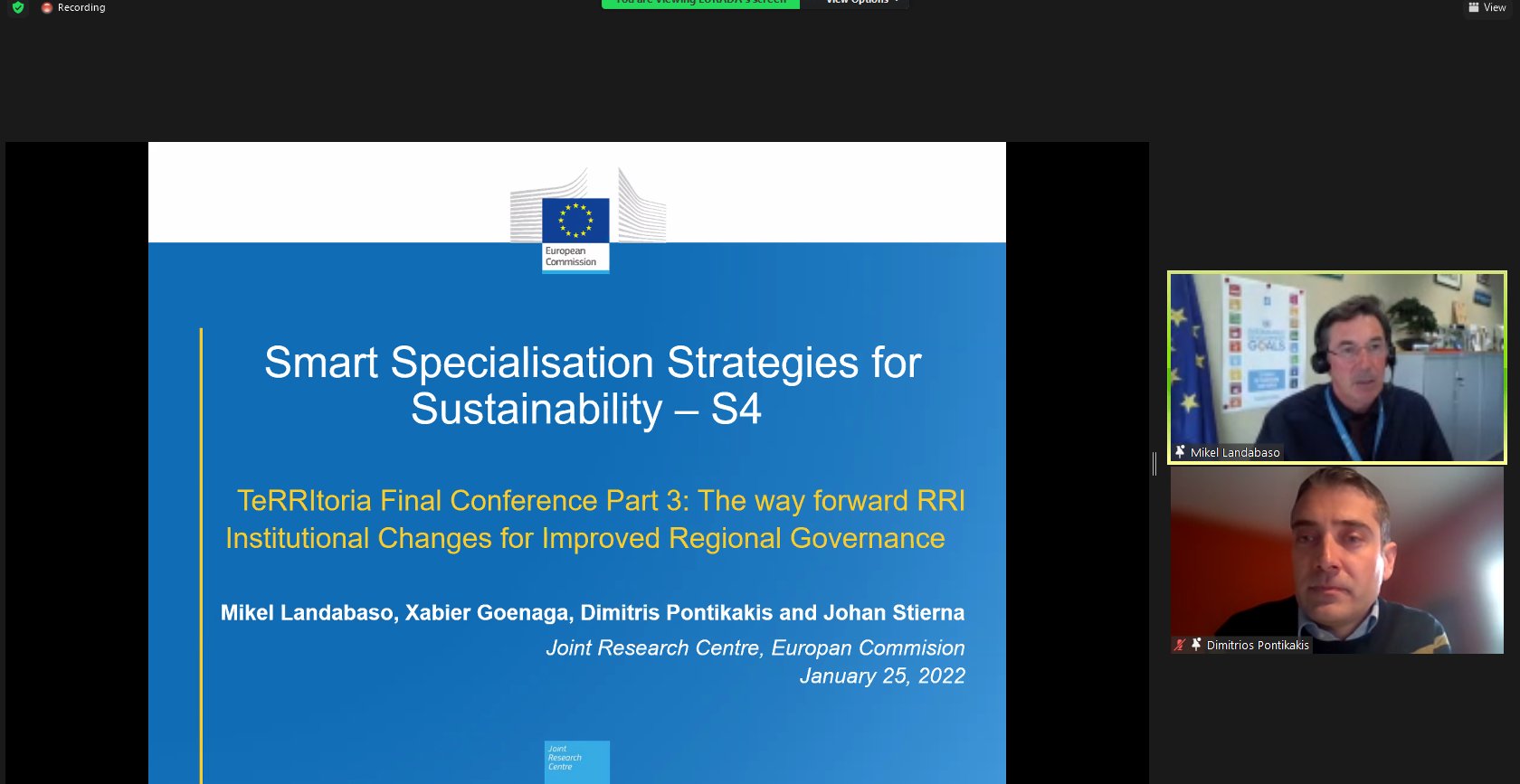The way forward
The third session of the series RRI institutional changes for improved regional governance took place on January 25th, and featured discussions and ideas by the key speakers and panellists on The Way Forward for Smart Specialisation Strategies (S3) at the regional level.
113 participants had the chance to join the session moderated by Nikos Zaharis, Director of SEERC, commenced with presentations by Mikel Landabaso and Dimitrios Pontikakis from the European Commission’s Joint Research Centre of their work on the transition from S3 to Smart Specialisation Strategies for Sustainability (S4).
Mikel shared some of the shortcomings of Research and Innovation Smart Specialisation Strategy (RIS3), including a lack of granularity of the selection of priorities in many regions, a lack of directionality and the absence of mission-oriented approaches to objectives, a fragmentation of instruments, as well as the fragmentation of efforts both vertically and horizontally in terms of funding and governance. He noted that the challenges for S4 lie in the need to stimulate socio-economic transformation through innovation and directly respond to the shortcomings of RIS3, with an increased focus on resilience.
On the topic of why S4 is needed and why at this point in time, Dimitrios spoke on how we are in an important transformation, in large part with the European Green Deal, that serves as an opportunity to retool our economies and achieve better societal outcomes through innovation, with one objective being to use resources in ways that generate co-benefits for the economy, society and the environment. One approach to help build S4 on the lessons and successes of S3 is for regions to work backward from transformative outcomes that they want, beginning with a societal challenge and engage all relevant stakeholders, working forwards towards the rational.
Mikel and Dimitrios both discussed their current project of creating a playbook for policymakers that incorporates the lessons learned over the past decade from RIS3 and builds upon them with a new methodology drawn from the best knowledge and research of today. The playbook will serve as a set of tools: concepts, approaches, diagnostic tools, guiding principles, good practices, and examples from the ground and the pilot projects, that should be used as a set of building blocks for actors to use to develop a strategy, with the first edition of this playbook expected in mid-May 2022.
The next keynote speaker of the session was Philip McCann, who shared a presentation on the regional innovation change in the context of climate change. One challenge he brought up was that many regions prioritise smart growth over sustainable and inclusive growth, or two of the three types of growth, rather than all of them. The European Green Deal changes these priorities for regions and there is a need for a shift towards growth that is smart for sustainable, and growth that is smart for inclusive. Another challenge Philip examined was the need to address the needs of and target solutions for weaker and less prosperous cities, and areas outside of urban centres, which needs to be taken into account as strategies are developed and tested.
Following Phillip’s presentation, Ingeborg Meijer from Leiden University shared her experience on S3 and how it is often placed in economic domains, and rarely based on a knowledge base that allows for diversity and innovative-related knowledge and technologies that can drive economic strengthening in the region, which requires bringing together stakeholders that don’t only work at the policy level. The final speaker of the session was Nhien Nguyễn from the Horizon2020 project SeeRRI, who presented on the importance of not just taking S3 and adding sustainability, but also expanding and improving on it, such as by adding Responsible Research and Innovation (RRI). Overall, the third webinar of the TeRRItoria final conference proved to be engaging and informative session due to the knowledgeable speakers and the engagement of participants. Many ideas, solutions, and approaches emerged throughout the discussions on how to improve and learn from some of the challenges of S3 and the transition towards S4 at the regional level. This final session of the conference served as a good indicator of the progress accomplished and the way forward of RRI and S3, and marks the end of the TeRRItoria project.





